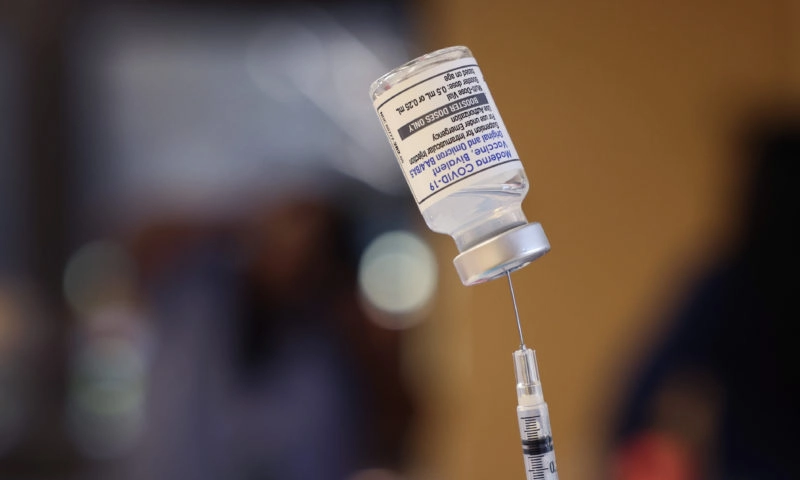- Web
- Feb 20, 2026
US to limit Covid boosters to over-65s or those at high risk
-

- AFP
- May 20, 2025

WASHINGTON: The United States will restrict routine Covid-19 boosters to people over 65 or those at higher risk of serious illness, while requiring new placebo-controlled trials to justify vaccination in healthy individuals under that age, senior officials said Tuesday.
The move comes as Health Secretary Robert F Kennedy Jr — a longtime vaccine skeptic who has spread doubt about immunization programmes — pushes to remake federal public health policy.
Writing in the New England Journal of Medicine, the Food and Drug Administration’s Vinayak Prasad and Commissioner Martin Makary framed the policy shift as evidence-based and said it would bring US guidance more in line with that of European nations.
They described the initial Covid-19 vaccine rollout as “a major scientific, medical, and regulatory accomplishment” — but argued the benefits of repeated boosters in low-risk individuals remain uncertain.
Contrasting the US approach with that of the United Kingdom, France, and Germany, the authors criticized what they called America’s “one-size-fits-all” strategy.
Also read: COVID-19 rates are rising again: What you need to know
They said it was based on the mistaken assumption that Americans cannot understand age- and risk-based recommendations.
Rather than building trust, the approach had backfired, contributing to broader vaccine hesitancy — including toward childhood immunizations such as the measles, mumps, and rubella (MMR) vaccine, the officials argued.
Going forward, the FDA expects to find a favorable benefit-risk profile for people over 65, and for anyone over six months old with one or more underlying health conditions, based on antibody levels generated by vaccination.
However, “for all healthy persons — those with no risk factors for severe Covid-19 — between the ages of 6 months and 64 years, the FDA anticipates the need for randomized, controlled trial data,” the officials wrote.
“We simply don’t know whether a healthy 52-year-old woman with a normal BMI (body mass index) who has had Covid-19 three times and has received six previous doses of a Covid-19 vaccine will benefit from the seventh dose,” they added.
Vaccine makers such as Pfizer and Moderna will be encouraged to conduct trials involving adults aged 50 to 64. These studies should assess whether boosters reduce symptomatic illness, severe disease, hospitalization, and death.
Last week, pharmaceutical company Novavax received approval for its COVID-19 vaccine — but only for adults over 65, and for individuals aged 12 and older with at least one underlying health condition.
Rather than comparing updated boosters against earlier versions, Makary and Prasad said “the control group could receive a saline placebo, to permit documentation of the full adverse-event profile.”
That approach — using a placebo when a “standard-of-care” vaccine already exists — is contentious within the biomedical community. Covid vaccines were originally granted approval based on large-scale placebo-controlled trials involving tens of thousands of participants.
The idea of retesting established vaccines against placebo was first floated earlier this month by Kennedy, according to reports.
Supporters of continued Covid-19 boosters often draw parallels to annual flu shots. But Makary and Prasad pushed back on that comparison, arguing the two diseases behave differently in terms of how they mutate over time.
They said Covid vaccine-induced immunity may not require yearly updates to protect against the most clinically relevant outcomes.
The authors also sought to reassure Americans concerned they might lose access to boosters under the new framework.
The Center for Disease Control and Prevention’s (CDC) definition of risk factors is “vast, including obesity and even mental health conditions such as depression,” they wrote, noting that between 100 million and 200 million Americans would likely still qualify.
Prasad, a hematologist-oncologist who now leads the FDA’s Center for Biologics Evaluation and Research (CBER), rose to prominence during the pandemic for publicly questioning widespread booster use.




